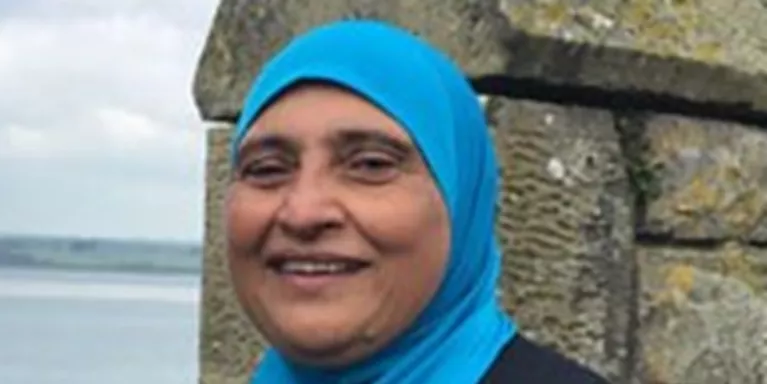Peer support
Explains what peer support is, what types there are, how it can help you and how to access it.
How can I find peer support?
There are a number of different way to find and access a type of peer support that suits you. You can often start doing peer support without a referral from your GP, although there are some types of support that do need your GP to refer you.
You may be able to find peer support through:
Hub of Hope
If you’re looking for a peer support group in your area, check out what's listed on Hub of Hope.
Hub of Hope is a national mental health support directory. It’s a service provided by the charity Chasing the Stigma.
The NHS
Some NHS services run peer support groups. For example, this may be available within hospitals or organised by community mental health teams (CMHTs). You might need a referral from your GP to attend these types of support.
Your doctor or health care team might also have details of other support options in your area, such as charity or community groups.
Local Minds
Many local Minds offer different types of peer support service across England and Wales. To find out what's available in your area, you can ask Mind's Infoline or contact your nearest local Mind branch.
Online support
There is a wide range of peer support available online. For example:
- Mind runs the online support community Side by Side, which is open to anyone over 18.
- Website such as Togetherall can offer you free access to online peer support, although this is sometimes not available free if you live in certain parts of the UK. If your local area is eligible for this, you may be able to gain access with a GP referral or through your university.
- Our guide to online mental health has more information on online support tools and looking after your safety online.
It’s also helped me to feel more accepting and at peace with who I am.
Community and voluntary groups
Many community and third sector (charity) organisations provide peer support, although they're often not very well known and may not be easy to find.
These are some ideas to help you find out what may be available in your area:
- Ask your local library or community centre. They might know about groups which are run near you.
- Mind's Infoline can help you find support options in your area.
- Explore our useful contacts for different diagnoses and experiences. Each topic in our mental health A-Z has a list of useful contacts related to that topic. This includes many organisations that provide peer support focused on a particular diagnosis or experience.
- Do an internet search to look for details of online or offline peer support. You might also find details of local groups on social media. Our guide to online mental health has more information about using online support.
- If you live in England, you can find details of support groups on the Rethink Mental Illness website and the Together UK website. The National Survivor User Network (NSUN) website also has details of peer support groups, in person and online.
- If you live in Wales, Hafal provides some peer support services, including befriending.
- If you identify as a member of an LGBTQIA+ community, there may be support groups in your area or online for LGBTQIA+ people generally, or for specific identities. The Consortium website lets you search for different types of service across the UK. This includes self-help and support groups.
- If you're from a Black, Asian or Minority Ethnic community, there may be groups in your area for people from your community. Bayo is a space to find collectives, organisations and services from across the UK that offer mental health and wellbeing support to the Black community.
- For older people, Age UK runs a telephone befriending service, as well as peer support and befriending services through local Age UK branches.
- Befriending Networks lists befriending services in the UK, including in England and Wales.

Peer support that empowers women
It felt wonderful just to be in the company of other people and talking again.
Peer support in rural areas
If you live in a rural area, mental health services and support may be more spread out. Your nearest local Mind should be able to suggest the most convenient options.
There are also several organisations that help support rural communities which may be able to help you access peer support, including the Farming Community Network (FCN) and Action with Communities in Rural England (ACRE).
Online support services like Mind's Side by Side Community can also be useful if you live in a rural area and struggle to find people who understand your experiences.
The stories shared were a personal revelation. Behaviours and thoughts I had kept secret and hidden for years were being mirrored by the words of others.
Student services
Student Minds runs on-campus peer support groups for student at some universities. You could also ask your student union, advice team or wellbeing centre for information about peer support. Or your university may be able to give you access to Togetherall.
Becoming a peer supporter
If you attend a group or share your experience online, you're already a peer supporter. Even if you don't speak up often, your presence counts. In peer support, listening to others is as important as sharing your own experiences.
You might also decide to get more involved by:
- volunteering. Many organisations offer opportunities to volunteer, for example by helping to moderate online communities.
- setting up your own group or being involved in group facilitation.
- applying for paid roles as a peer support worker, which will often include training.

My experience of peer support in a rural area
I still can't quite describe the feeling I had on finding this resource.
This information was published in July 2019.
This page is currently under review. All content was accurate when published.
References and bibliography available on request.
If you want to reproduce this content, see our permissions and licensing page.














